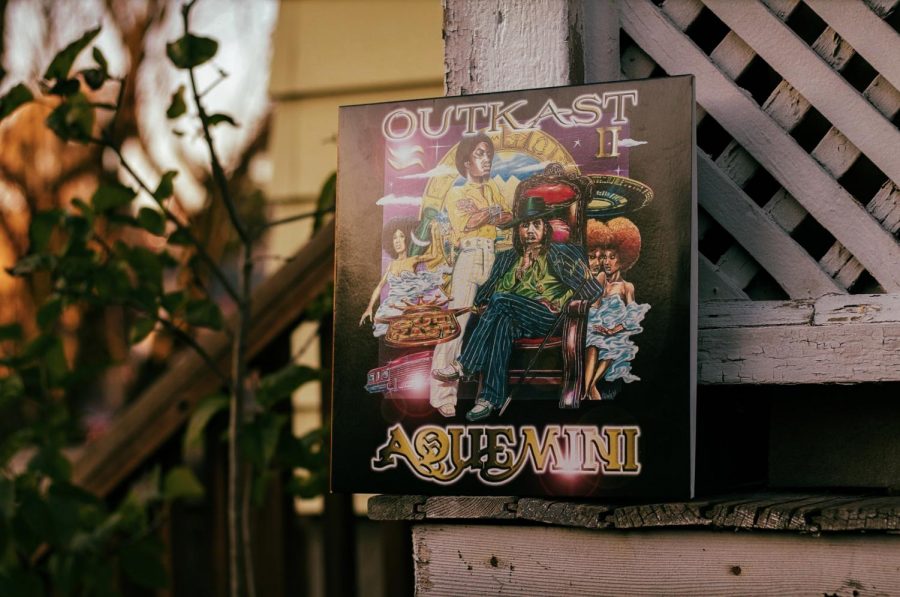Great Albums You May Have Missed: “Aquemini” by OutKast Sparks the Revival of Southern Hip-Hop
OutKast’s third album, “Aquemini,” revolutionized hip-hop music.
December 2, 2020
The music discussed in this article contains explicit content.
“The South got something to say.”
Three years before the release of OutKast’s third album, those six words were proclaimed on stage by André 3000 at the 1995 Source Awards. Little did they know that “Aquemini” would be the fulfillment of that prophecy.
Facing criticism following their previous album “ATLiens,” “Return Of The G” starts off the album dancing to a different tune. Members of the “real” hip-hop community saw their decision to stop producing music about guns and violence to be soft. Simultaneously, many original fans found that the transition from promoting destruction and gang violence on their first album to spreading positive messages was too much like gospel rapping.
The track concludes on a skit where André Benjamin, also known as André 3000, and Antwan Patton, who is known as Big Boi, poke fun at their critics for dismissing their music. Old OutKast fans turn down the new album for a copy of an imaginary group André named the “Pimp Trick Gangsta Clique” to parody all the big hip-hop record labels at the time.
The next possibly most revered and controversial song on the album, “Rosa Parks,” refers to the Montgomery Bus Boycott, and the segregation African Americans were facing. The duo compares Rosa Parks’ refusal to sit in the back of the bus to their movement to revive hip-hop.
Famously, a lawsuit was filed by Rosa Parks against the group for using her name without getting permission.
However, after things were settled outside of court, André revealed that he had spoken to Ms. Parks’ family, who were critical of her lawyer. Some claimed that Ms. Parks may have been unaware of the lawsuit because she was suffering from dementia, and that the lawyer’s motives were simply to profit.
The song “Aquemini,” from which the album was named, is a concoction of Big Boi and André’s astrological signs — Aquarius and Gemini — to represent their bond as artists and dismiss the assertion from critics that OutKast was destined for a breakup.
In the song, Big Boi compares their companionship to “Batman and Robin” riding around in the “Batmobile.” Claiming that they’d stick together when times got tough and take advantage of any opportunity, they got to transform the hip-hop industry.
OutKast illustrates life in the south to the world with their song “SpottieOttieDopaliscious.” This song narrates the Atlanta nightlife and all the possibilities it holds. Big Boi recalls discos in East Atlanta where DJs were responsible for “sweatin’ out all the problems and troubles of the day,” and you had the opportunity to meet someone that might change your life forever.
I like how this album blends the creative sounds from soul, funk, Southern rock, and church choirs while alluding to the effects of racism in the Black community, particularly in the South. The experimental sound from “Aquemini” revolutionized hip-hop while continually referencing the theme of segregation faced by African Americans in the ‘90s. Aquemini acted as a rebirth for both OutKast as a group and for Southern hip-hop as a whole.





